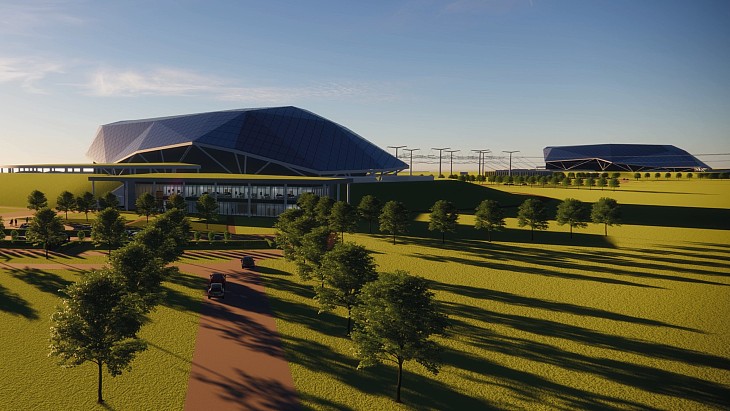In late November, the European Commission adopted a strategic long-term vision for a "prosperous, modern, competitive and climate neutral economy" by 2050. The strategy - referred to as A Clean Planet for All - shows how Europe can lead the way to climate neutrality by investing into "realistic technological solutions, empowering citizens, and aligning action in key areas such as industrial policy, finance, or research", according to the Commission. This transition can be made, it suggests, "while ensuring social fairness". Each of the eight possible scenarios for the European Union includes a significant share of electricity generated by nuclear power.
In a new position paper, Foratom highlights nuclear energy's three main advantages in the context of meeting the EU's aim: environmental sustainability, energy independence and economic contribution.
"Based on the current climate change debate, it is important that nuclear energy capacity is maintained (and preferably increased) in order for the EU to achieve its target," Foratom said. "Nuclear energy will help the EU meet its 2050 objectives both in terms of ensuring security of supply and lower greenhouse gas emissions.
"In order to achieve a fully decarbonised electricity sector by 2050, the European Union needs an energy mix with at least one-quarter nuclear," it added. "This translates into a minimum of 150 GWe of installed nuclear capacity."
Foratom highlighted that, in addition to reducing carbon dioxide emissions, nuclear energy can limit other air pollutants, such as sulphur dioxide and nitrogen dioxide. Nuclear power plants generate less waste compared with other energy sectors and also has significantly lower land requirements than other low-carbon energy sources.
Nuclear energy also increases the level of energy independence, "which is essential considering that the EU imports approximately half of the energy it consumes, with many EU member states dependent on one single external supplier," Foratom noted.
Nuclear energy is economically and socially sustainable, the organisation said. Nuclear electricity generation costs are much less affected by potential fuel price spikes as uranium costs are only a small component of the total cost of production.
"The nuclear industry also contributes significantly to the economic growth of the countries which chose it as it offers a large amount of long-term highly skilled jobs," Foratom said. It estimates the industry currently provides some 800,000 jobs in Europe.
"The recognition of nuclear energy by the European Commission as an essential element of Europe's low-carbon future is a step in the right direction", said Yves Desbazeille, Director General of Foratom. "It's important to keep in mind that nuclear energy is capable not only of reducing CO2 emissions, but also provides many other benefits as it ensures security of energy supply and is environmentally, economically and socially sustainable."
The 128 nuclear power reactors (with a combined capacity of 119 GWe) operating in 14 of the 28 EU member states currently account for over one-quarter of the electricity generated in the whole of the EU. Nuclear accounts for 53% of the EU's carbon-free electricity.
The global nuclear industry has set the Harmony goal for nuclear energy to provide 25% of global electricity by 2050. This will require trebling nuclear generation from its present level. Some 1000 GWe of new nuclear generating capacity will need to be constructed by then to achieve that goal.

.jpg)



_19544_40999.jpg)


_66668.jpg)





